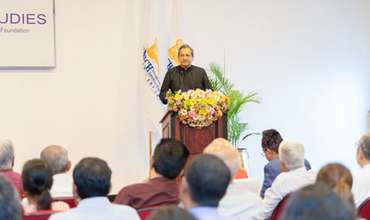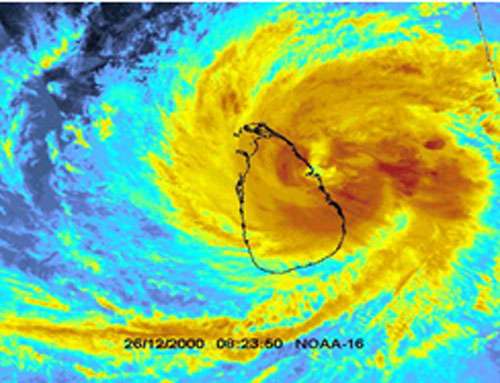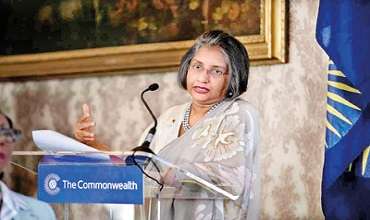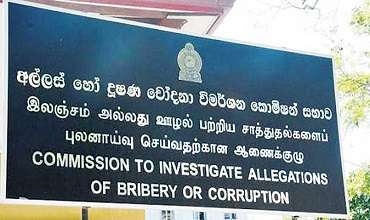Focus on environmental conservation required during economic crisis
By Supun Lahiru Prakash
There is no doubt that the economic crisis that Sri Lanka is facing at the moment has become a full political crisis and a humanitarian emergency. The government defaulted on its debt for the first time in its history in May, as years of economic mismanagement and the enrichment of an elite few left the coffers empty.
This crisis shows how the previous and current governments have ruled in the country. There is no doubt that the majority of the country's sleepy public is also responsible in this regard. Without considering all these social and political issues, we cannot even talk about the overall environmental conservation of this country, including flora and fauna, ecosystems, and natural resources.
Simply, this economic crisis is not at all favorable to environmental conservation and if we do not dedicate ourselves properly to the conservation and sustainable use of the country's environmental resources in this critical situation, we will fall from the frying pan into the fire for sure.
If we put fraud and corruption aside for a while, it is not necessary to say again and again that the hardship we are facing today is due to the unplanned development activities we have done by spending foreign loans for many decades.
That development did not bring positive benefits to the country's economy and was not favorable to the environment either. The environmental conservationists of this country have shouted tirelessly that the so-called development carried out by turning natural forests into concrete forests will not bring prosperity to the general public of the country as well as to the natural environment. The general public didn't understand that reality, so the white-collar thieves as well as the dull politicians who rule the country did not want to pay attention to it.
Most of the development dreams seen by the rulers of our country didn’t come true. For instance, the Moragahakanda Kaluganga multi-purpose development project, which was started with big development dreams, has been discussed in recent days, because it ruined the annual elephant gathering at the Minneriya National Park, which is 'one of the 10 greatest wildlife wonders of the world'.
During one tourist season, through the gathering of wild elephants in the Minneriya National Park, one elephant that comes there has earned about ten million rupees for our country, according to experts in the tourism industry. But the authorities who dreamed of cultivating 300,000 acres of new land through Moragahakanda by kicking in that amount of foreign exchange, now have neither foreign exchange nor cultivation.
Moreover, due to the loss of this traditional dry season feeding grounds, the elephants, who are facing food shortages, invade the houses, home gardens and paddy fields of the local people, and the innocent poor farmers who are currently suffering from the human-elephant conflict have fallen from the frying pan into the fire. Another new group of people has also become victims of this unplanned development.
This is evident as the number of human-elephant conflict incidents in the area has increased six fold by 2020 compared to 2017, according to Wildlife Conservation Department data. Female elephants and their calves do not encroach on human habitats and die of starvation and malnutrition. This situation will determine the future fate of the Asian elephant subspecies unique to Sri Lanka. Most of the development dreams seen by the rulers of our country are like that.
The problem we are facing today is that the government is trying to destroy our natural environment again in the name of resolving the economic crisis. I had to present at a press conference held by environmental conservationists the other day against the massive forest destruction that was led by the head of a leading ancient Buddhist temple in the North-West Province.
In addition as environment conservationists in Sri Lanka we have had to write to the President about an attempt to encroach forest lands in the Kebiliththa forest reserve in the name of food security. However, the rulers keep mum on this because they think that the various development projects that are being carried out by destroying these forests will shrink the country's economic crisis. But we have more than enough evidence that it is not so.
There is much evidence from the past that can be presented. We are putting all this effort into protecting the right to life of many unborn generations in this country. But it is sad that even the general public does not pay attention to it. We should understand at least today that there is no socio-economic development through environmental destruction. If still our development strategy is abusing the environment in the name of development, if we do not try to get out of it even in this last minute, the future of the county will be more fearful indeed.
Among all this, we should not forget that this small island nation is becoming a grave victim of accelerated climate change. The negative impacts of global warming are affecting the economy of every country in the world. All industrial and service sectors such as agriculture, livestock, and fisheries are affected.
As a country with an economic crisis, we are more vulnerable to the adverse impacts of climate change. So we need to take immediate measures to prepare or adapt to those adverse impacts. We have to have more funds for that. Yet, can we find adequate funds needed for mitigation and adaptation to climate change in a country where children are suffering from malnutrition?
Even at this moment, if we, the general public, do not act with common sense, these dirty politicians and white-collar thieves will lead us to a dark era where we do not have either a developed or livable environment.
The writer is a Convener – Biodiversity Conservation & Research Circle of Sri Lanka
-
Still No Comments Posted.












Leave Comments